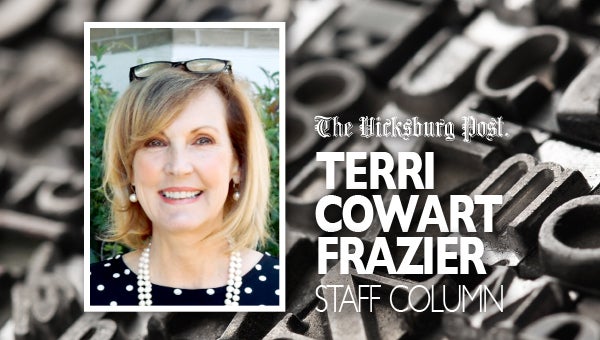FRAZIER: The value in teaching money management
Published 4:00 am Saturday, October 9, 2021
Outside of doing a little babysitting, my first real job where I earned a paycheck was working at Merchants Bank.
I started out in the customer service department, which was located in the bowels of what is now BancorpSouth’s main office building on South Street. The customer service department was where checks were sorted and filed, and my boss was Betty Parker.
Checks are a bit archaic now since most people use an ATM card, PayPal or Venmo, but back in the day, if you didn’t pay by cash or card, you wrote a check.
Checks came to the customer service department after they had been cashed or deposited at the bank, and as I said, they were sorted and put in a folder according to the customer’s name and account number. At the end of each month, these canceled checks were then mailed to the account holder so they could reconcile their bank account and keep them for their records.
I found working in customer service a tedious job and a bit boring, but at the end of the week when I got my paycheck, it was well worth the effort.
After spending several weeks in the basement sorting and filing, I was moved to a teller position.
Unlike the customer service position, I really liked being a teller. You got to interact with the community and deal with money.
And because I was dealing with money and having to account for every penny at the end of the day, telling also taught me how to manage my own bank account.
My dad being an accountant helped, too.
There are a lot of people that struggle with their finances, some because they have just never been taught how to manage money.
This got me to thinking and wondering if high schools have any classes that teach real-life skills — skills that are essential when you strike out on your own like knowing how to manage money, the value of insurance, investing money and other financial necessities and obligations they will experience.
This knowledge would not only be valuable for them but also empowering.
In this culture we live in, there are many social programs providing support to some that if only they knew how to help themselves, they would.
When I was in high school, the only real-life skill classes I remember taking were home economics and drivers’ education. I can’t say I have always made the best financial decisions along the way, but I can say I had the opportunities to learn from family and my job at the bank, so I could reconcile them before they got out of hand.
There is value in learning the three R’s in school, but I think there is also value in being taught real-life skills.
Who knows, this could be just the thing to balance out our economy.





